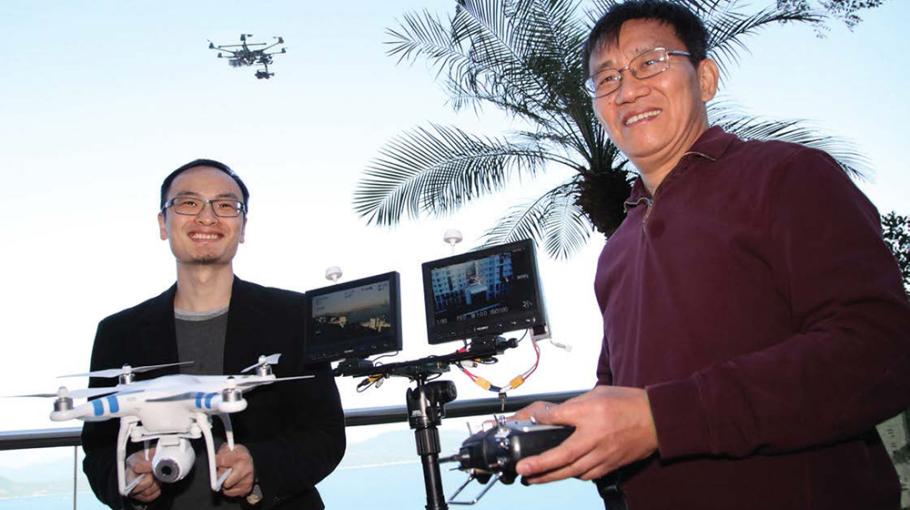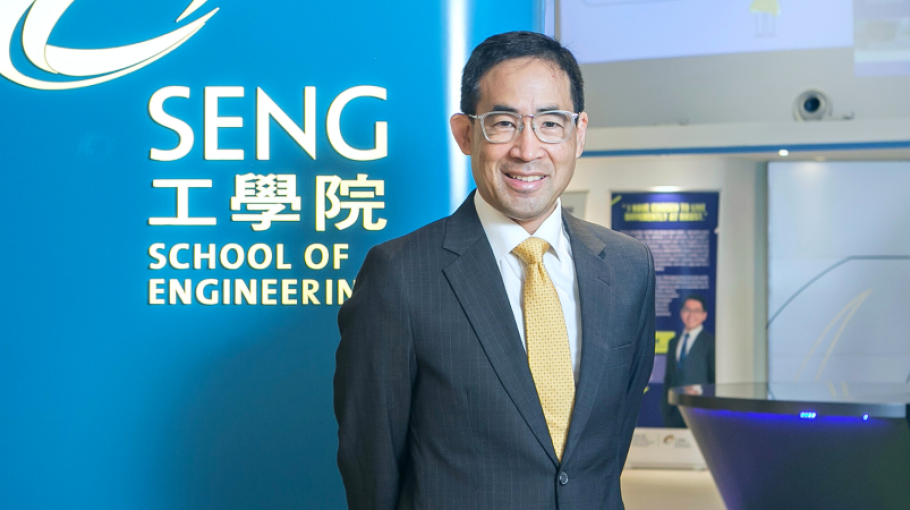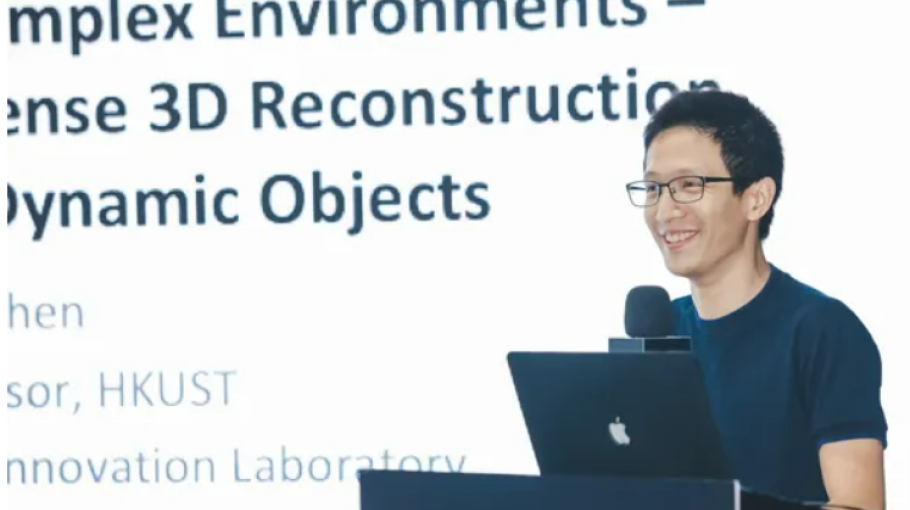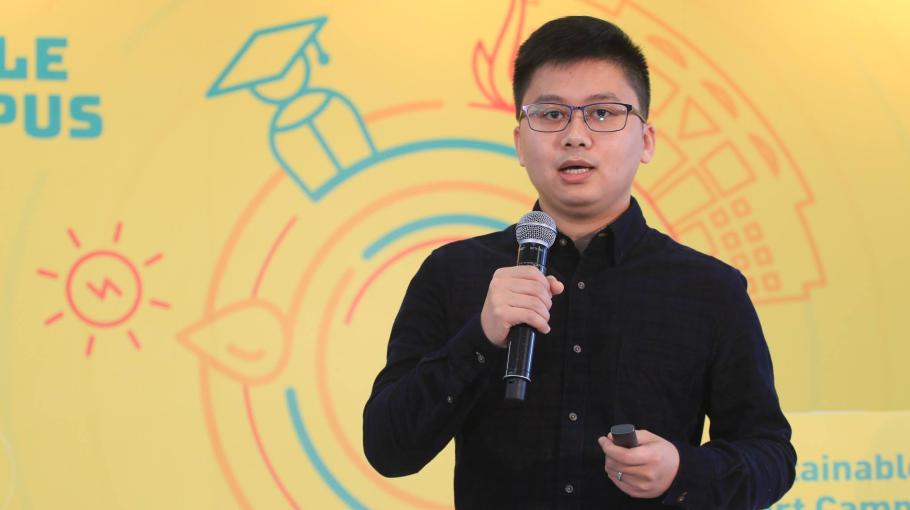

SOARING HIGH
Unmanned aerial vehicles (UAVs) or drones originated in military applications, but their use is increasingly expanding to different commercial areas, hobbyists, agricultural purposes and a wide range of other civilian applications. The drone manufacturer that holds more than 75% of the civilian drone market share, DJI, was founded humbly out of Frank Wang’s HKUST dorm room and personally incubated by his teacher, Prof Zexiang Li.
Their research on UAVs have resulted in drones that can handle complex terrains via pioneering motion control and robotic perception technologies. Prof Li’s vision for innovation and knowledge transfer, coupled with Frank Wang’s lifelong passion for flying devices, were central to the growth of DJI. Today, the company provides employment for more than 5,000 people globally and funds several scholarships for HKUST graduate students to pursue robotics research.

WHERE ROBOTICS MEETS NEUROSCIENCE
Prof Bertram Shi has developed the Active Efficient Coding (AEC) framework in collaboration with Prof Jochen Triesch’s team at the Frankfurt Institute for Advanced Studies in Germany. Combining multidisciplinary talents involving math, engineering, and neural science, their framework provides a parsimonious account of the perceptual and behavioral mechanisms of animals and humans co-develop during infancy. It hypothesizes that humans adapt their neural and motor systems to facilitate the efficient encoding of relevant sensory signals during the perception-action cycle. Such neurally-inspired designs will enable robots to become more adaptive and autonomous, like biological systems they are modeled after. This technology has wide ranging applications in areas such as medicine (e.g. in predicting the effect of interventions) and industry (e.g. greater automation in manufacturing).

Far-reaching Autonomous Systems
HKUST is now a global leader in UAV technology. Prof Shaojie Shen, Department of Electronic and Computer Engineering, is among those leading such advances. He returned to his alma mater in 2014 after completing doctoral studies at the University of Pennsylvania because of HKUST’s strong connections with industry, including DJI, Texas Instruments and cell phone chip company QUALCOM, among others. The particular challenge that Prof Shen is interested in is how to free UAVs from GPS control, so they can sense and evaluate the environment, and respond intelligently to situations they find while on their flight missions. Drones currently on the market still depend on people to ensure their safety in the air.

Visual Intelligence Lab
Prof. Qifeng Chen is an assistant professor of the Department of Computer Science and Engineering and the Department of Electronic and Computer Engineering at The Hong Kong University of Science and Technology. He received his Ph.D. in computer science from Stanford University in 2017. He has more than 50 papers published/accepted in top conferences and journals. He is named one of 35 Innovators under 35 in China in 2018 by MIT Technology Review. He won the Google Faculty Research Award 2018. He won the 2nd place worldwide at the ACM-ICPC World Finals in 2011 and a gold Medal in IOI 2007. He co-founded the startup Lino in 2017.